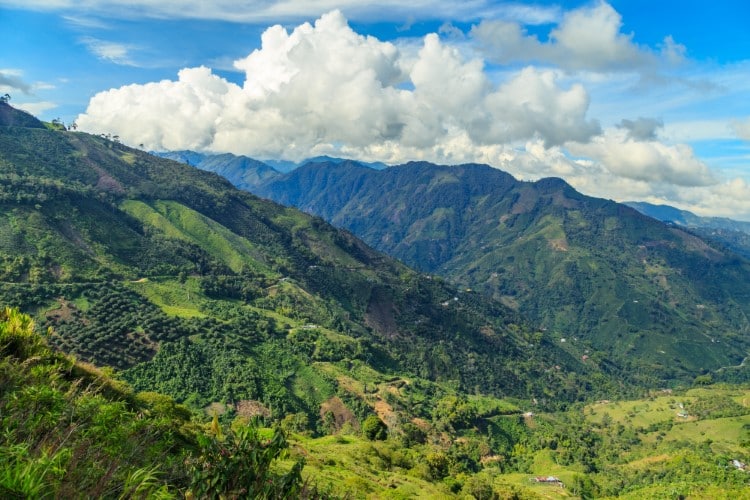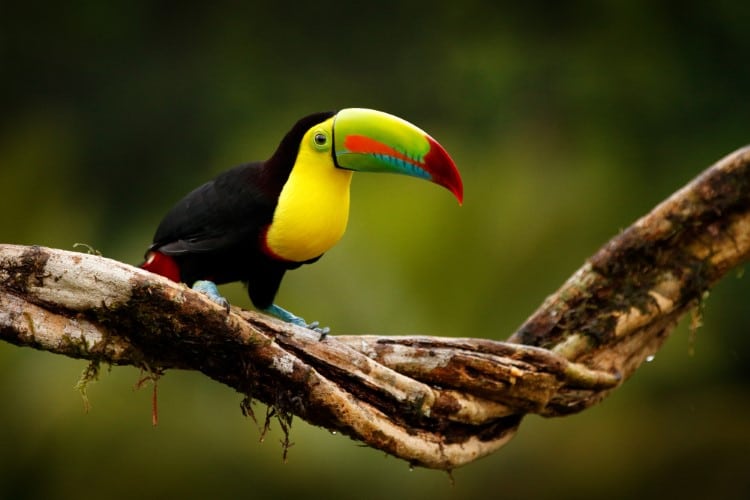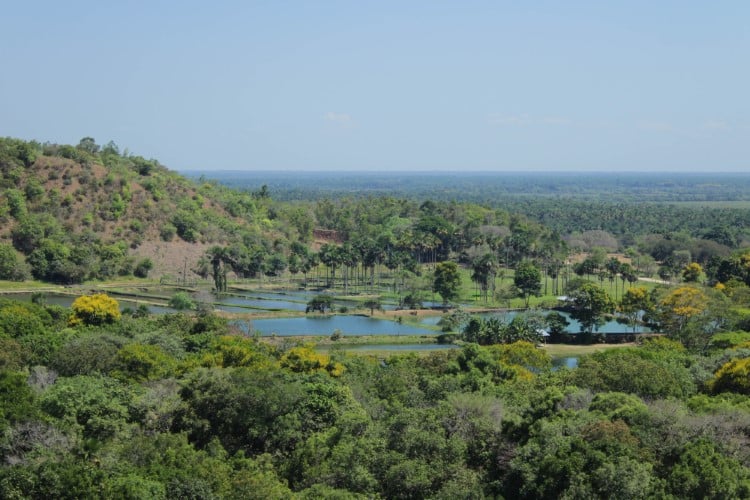
Photo: ilyshev/Depositphotos
As the second-most biodiverse country in the world, Colombia has an important role to play on our planet. Over 60,000 species have been registered in the country, many of which call the Colombian Amazon home. But deforestation has always been an issue. Thankfully, according to official figures released by the government, deforestation fell 29% nationwide and 26% in the Amazon over the last year.
The impetus for this dramatic turnaround? It’s all tied up in Colombia’s complex political history. In 2016, then-president Juan Manuel Santos signed a ceasefire with the guerilla group FARC, ending 50 years of civil war. Unfortunately, the environment was not put at the forefront of those peace negotiations, and as splinter groups popped up in the Colombian countryside, the destruction of the Amazon rainforest continued and, in some cases, worsened.
Now, under the leadership of the country’s first left-wing administration, the government is reaching out to these groups for individual peace talks. And often, the top bargaining chip is the environment. President Gustavo Petro has made a pledge to bring “total peace” to the country and is sending representatives deep into the Amazon to speak with these factions. In return, some of the rebel leaders have ordered farmers to stop cutting forest as a show of good faith.

Photo: OndrejProsicky/Depositphotos
This is already making a big impact. Colombian conservationist Rodrigo Botero, who leads aerial surveys of the Amazon rainforest, has been amazed by the impact. From the air, he has had a bird’s-eye view of the smoke and fire that raged through the area as large swaths of land were burned. Now, it’s a different experience. “A year ago the columns of smoke were so great that we couldn’t even breathe in the cockpit,” he shares.
Much of the change is happening in Guaviare state, where arid cattle grounds meet rich, lush jungles. The government is setting its focus here in hopes of preserving an environment that is home to innumerable species. Here, a rebel group called Estado Mayor Central or Central Command (EMC) runs the show. Made up of former FARC fighters, the group has asked local farmers to stop logging in and, in return, they hope that the government will take up peace talks.
Botero has never seen anything like it. “It’s unprecedented. We’ve never had this as the first step in negotiations.”

Photo: lucas_bautista/Depositphotos
The government is seizing the moment and sending representatives like Environment Minister Susana Muhamad into the deep reaches of Guaviare to solidify an agreement. Muhamad has stated that this time, the environment will be placed at the forefront of any peace talks.
While it’s still too early to see if these deforestation ceasefires will hold, officials are optimistic. They see the fact that these bans have come from the dissidents themselves, rather than from the government, as a positive sign.
“What I’m hearing, seeing, and feeling in these meetings is that there is an enhanced understanding that you cannot build a new Colombia on the basis of the further deterioration of nature, so you have to find an economic, social, political, inclusive process that is more respectful towards nature than before,” says Espen Barth Eide, Norway’s environment minister, who is also involved in the talks.

Photo: wrangel/Depositphotos
Still, EMC is not the only group that rules portions of the Colombian Amazon. And there is still evidence that many of these armed groups and gangs continue to abuse the environment for their own gains. There is also evidence that EMC, while ordering farmers to stop cutting down trees, is still happy to take money from criminals who want land for cattle or to develop.
While Botero acknowledges that this is a possibility and something to keep a close watch for, there’s no denying that, for the moment, Colombia seems to be moving in the right direction.
h/t: [The Guardian]
Related Articles:
Amazon Rainforest Is Now Releasing More Carbon Than It Absorbs
Monarch Butterfly Populations Are Showing Recovery After a Winter in Mexico
Global Regeneration Efforts Have Regrown a France-Sized Area of Forest Since 2000
People Are Using This Tree-Planting Search Engine to Help Save Earth After the Amazon Fires
